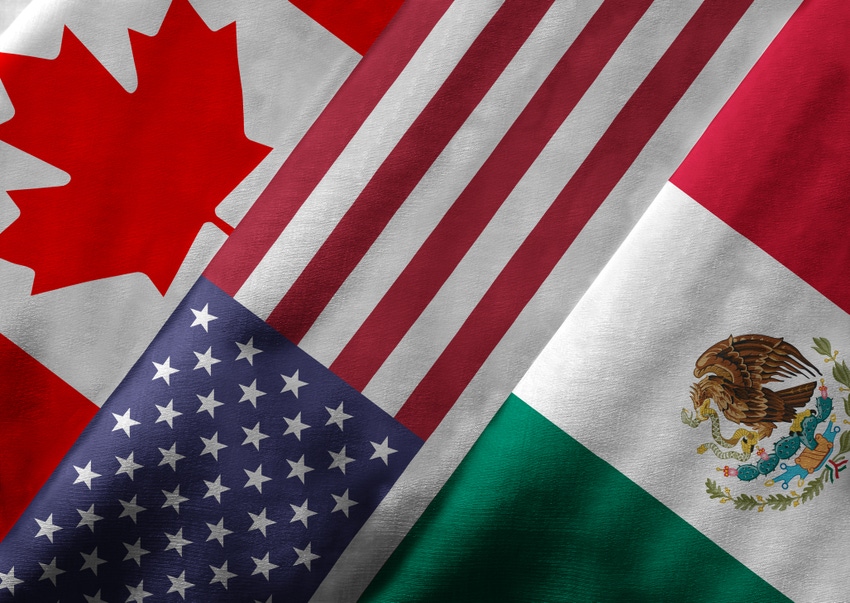
by Lydia Mulvany and Megan Durisin
The largest U.S. cattle trade group said it’s “very concerned” about President Donald Trump’s pledge to renegotiate the North American Free Trade Agreement, which calls into question whether the industry will continue to enjoy its current level of market access in Mexico and Canada.
Related: Mexico readies to revise NAFTA
A shakeup of NAFTA now would come as U.S. beef output is forecast to rise to a six-year high. More supplies mean the industry must continue to export or face a chronic oversupply.
"Americans are not going to eat more beef at the same price,” said Kent Bacus, director of international trade and market access at the National Cattlemen’s Beef Association. “If there’s a surplus, we have to move that product to other countries, and to sustain the expansion, we need to expand export markets.”
U.S. beef exports rose 78% by volume since 1993, the year before NAFTA was enacted, according to U.S. Department of Agriculture data. As of 2015, Mexico was the largest foreign buyer of American beef and Canada was No. 4, according to figures compiled by the U.S. Meat Export Federation.
NAFTA “has been a very lucrative opportunity because of strong demand in Mexico and Canada,” Bacus said in an interview on Wednesday at the group’s conference in Nashville.
Those kinds of hungry export markets are badly needed. U.S. cattle inventory expanded in 2016 for a third straight year, the longest stretch in a decade. Frozen-beef stockpiles stood at a record at the end of last year.
Net Exporter?
For 2017, the USDA forecasts domestic production will rise to 26.019 billion pounds and exports to 2.64 billion pounds, the highest levels since 2011. The meat will also have to compete with what’s expected to be a record production of pork and chicken.
Ample, cheap supplies of U.S. beef may dominate global markets this year and the country could be a net-beef exporter by 2018, market analyst Mike Murphy of CattleFax said at the Nashville conference. Growth in world beef output this year will come mostly from the U.S., he said.
Trump said Thursday he wants to begin 90 days of consultations on NAFTA, which has been in place since 1994 and eliminates trade barriers between the U.S. and its two neighbors. While Trump has labeled the deal as unfair, U.S. exports of many agricultural products to Canada and Mexico have soared since it was enacted.
The NCBA, which represents more than 175,000 cattle producers and feeders, also bemoaned the U.S. withdrawal from the Trans-Pacific Partnership, the proposed 12-nation trade pact that includes Japan, Singapore, Australia, Canada and Chile. The U.S. beef industry is losing $400,000 a day due to lower tariffs for Australian meat that goes to Japan, according to Colin Woodall, the NCBA’s vice president of government affairs.
Cattle futures for April delivery rose 0.1 percent to close at $1.15625 a pound in Chicago on Friday. The price of the most-active futures contract has fallen 15% in the last 12 month.
To contact the reporters on this story: Lydia Mulvany in Chicago at mailto:[email protected]; Megan Durisin in Chicago at mailto:[email protected]
To contact the editors responsible for this story: Simon Casey at mailto:[email protected]
Carlos Caminada
© 2017 Bloomberg L.P
About the Author(s)
You May Also Like




